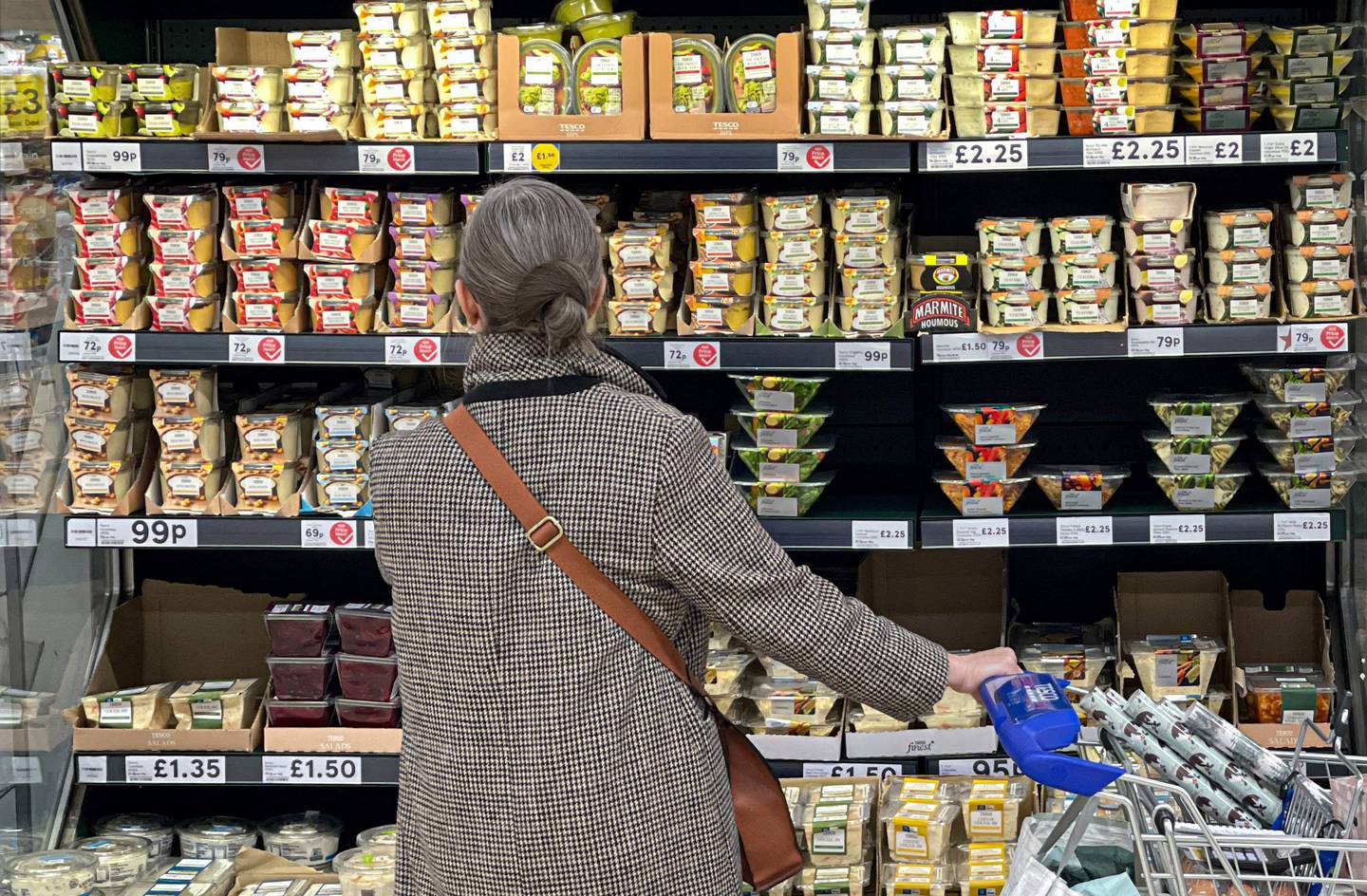UK inflation rises to highest level in three decades

Britain's inflation rate surged to a three-decade high on Wednesday, rising to 5.4 per cent in December from a year ago – its highest reading since 1992. The increase on November’s 5.1 per cent, according to the Office for National Statistics, is the latest sign of a cost-of-living crisis for British households.
Grant Fitzner, ONS chief economist, said the inflation rate has not been higher for about 30 years. “Food prices again grew strongly while increases in furniture and clothing also pushed up annual inflation,” Mr Fitzner said. “These large rises were slightly offset by petrol prices which, despite being at record levels, were stable this month but rose this time last year.”
Chancellor of the Exchequer Rishi Sunak said he understood the pressures people are facing with the cost of living. “We will continue to listen to people’s concerns as we have done throughout the pandemic,” Mr Sunak said.
Pat McFadden, Labour’s shadow chief secretary to the Treasury, said “the triple whammy” of a rise in the energy price cap on April 1, real wages falling and tax rises coming down the tracks ”are going to make this crisis even worse”.A big chunk of December’s price rises come from trends the UK has registered for months now, including the ever-increasing price of petrol.
This time last year, petrol prices were 114.1 pence per litre but they hit 145.8 pence this December, meaning filling up a 55 litre car now costs £17.44 ($23.74) more than this time last year, with the cost of transport up 11.9 per cent overall, according to Sarah Coles, personal finance analyst at Hargreaves Lansdown.
“Inflation is the horrible 90s trend we did not want to see again, but it is back," she said. Food and non-alcoholic drink prices made a much bigger contribution to inflation than normal – with prices rising by 5.4 per cent.
Clothes prices also bucked the usual December trend, growing more expensive over the month, with prices up 4.5 per cent in a year and children’s clothes up 5.5 per cent.
Meanwhile, second-hand cars are up 28.6 per cent in a year as demand outstrips supply while the price of home improvements, including maintenance and new furniture, continued to increase steeply amid the ongoing supply chain crisis, with the Omicron variant of Covid-19 also encouraging people to spend more time at home. Materials for home maintenance are now 13.9 per cent more expensive than a year ago while home furnishings are up 12.5 per cent.
“Inflation is going to pile serious pressure on UK households in the next few months, particularly when combined with the tax rises the chancellor has planned for April,” said Laith Khalaf, head of investment analysis at AJ Bell.
The main issue is that price rises are being most keenly felt in energy and transport, areas where expenditure is unavoidable and which constitutes a bigger slice of the budgets of those on lower incomes.
Households are set to be £1,200 a year worse off from April, when energy regulator Ofgem will increase its default energy tariff price cap, according to the Resolution Foundation. The organisation expects an increase of about £500 to energy bills that have already risen significantly amid soaring wholesale gas prices in recent months.
Failing energy companies could cause a further £100 to be added to energy bills while a 1.25 per cent rise in National Insurance contributions will cost the average household £600 a year. Paul Dales, chief UK economist, said it is no secret that inflation is going to rise even further.
The further rise in core producer price inflation to 8.7 per cent in December, from 8.2 per cent, will soon push consumer price index (CPI) inflation for core goods higher, while the surge in wholesale gas and electricity prices could result in an increase in utility prices in the region of 50 per cent from April 1.
“We think the result will be a rise in CPI inflation to a little above 7 per cent in April. That would be much higher than the peak of 6 per cent that the BoE was forecasting when it raised interest rates in December," said Mr Dales.
Although inflation will fall back from there, Mr Dales expects it to stay above 4 per cent for the rest of the year and will remain above the BoE's 2 per cent target until April 2023. "That is why we think the [central] bank will raise interest rates faster than most expect this year, from 0.25 per cent to 1.25 per cent, with the next hike to 0.50 per cent coming on February 3."
